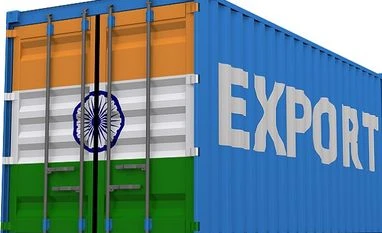Senior officials of India and the EFTA, a bloc of four European countries, will soon meet here for the next round of talks on the proposed free trade agreement.
India and the EFTA countries (Switzerland, Norway, Iceland and Liechtenstein) are working on the nuts and bolts of the pact, officially dubbed as the Trade and Economic Partnership Agreement (TEPA).
"Issues which could come up for discussion include a number of goods on which duties will either be eliminated or reduced significantly and liberalisation of norms in the services sector," a commerce ministry official said.
So far, 16 rounds of TEPA negotiations are over and the 17th is due here. The talks resumed last year after a gap of nearly three years.
Both sides had expressed willingness to jointly address major outstanding issues and agree to an early resumption of negotiations and conclude a balanced agreement in a time-bound manner.
The trade pact talks had started in October 2008.
The proposed agreement covers trade in goods and services, investments, trade facilitation, Customs cooperation, protection of intellectual property and public procurement.
The two-way trade between the regions dropped to $19 billion in 2016-17, from $21.5 billion in 2015-16. The trade gap is highly in favour of the EFTA group.
Under an FTA, trading partners give market access to each other with a view to promoting bilateral trade in goods and services, besides investments.
India is negotiating similar pacts with several other countries, including Australia, New Zealand, Israel and Canada. It has implemented FTAs with Singapore, South Korea, Japan and Asean, among others.
India and the EFTA countries (Switzerland, Norway, Iceland and Liechtenstein) are working on the nuts and bolts of the pact, officially dubbed as the Trade and Economic Partnership Agreement (TEPA).
"Issues which could come up for discussion include a number of goods on which duties will either be eliminated or reduced significantly and liberalisation of norms in the services sector," a commerce ministry official said.
Also Read
Both sides had expressed willingness to jointly address major outstanding issues and agree to an early resumption of negotiations and conclude a balanced agreement in a time-bound manner.
The trade pact talks had started in October 2008.
The proposed agreement covers trade in goods and services, investments, trade facilitation, Customs cooperation, protection of intellectual property and public procurement.
The two-way trade between the regions dropped to $19 billion in 2016-17, from $21.5 billion in 2015-16. The trade gap is highly in favour of the EFTA group.
Under an FTA, trading partners give market access to each other with a view to promoting bilateral trade in goods and services, besides investments.
India is negotiating similar pacts with several other countries, including Australia, New Zealand, Israel and Canada. It has implemented FTAs with Singapore, South Korea, Japan and Asean, among others.
)